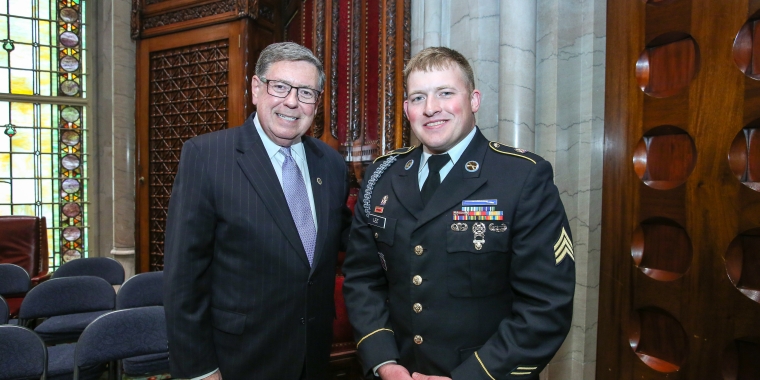
Medicaid Fraud Costs All New Yorkers
James L. Seward
February 4, 2010
-
ISSUE:
- Medicaid
As work begins in Albany on the 2010-2011 state budget, one of our primary focuses is saving money. New reports of the budget deficit continue almost daily and the dollar amounts are staggering. Moving forward, we must review every possible money saving option.
Enhanced Medicaid fraud detection is one tactic New York must employ. That’s why I have joined with my colleagues in the senate in establishing a new Medicaid fraud task force. The special panel will hold public hearings this month and work closely with county government leaders and district attorneys who are on the front lines of fighting fraud.
The task force won’t be conducting a long, drawn out study that will take years to complete. Instead, it will act like a strike force with two specific goals: ensure efficient delivery of Medicaid services to those in need; root out fraud and abuse. This aggressive approach will protect those who legitimately receive Medicaid services and produce cost savings to all taxpayers. Recommendations will be ready in a matter of weeks so they can be folded into the state budget discussion.
The savings potential is considerable. The U.S. Government Accountability Office estimates that as much as 10 percent of Medicaid expenses are siphoned off through fraud. The governor’s budget proposes spending a total of more than $51 billion on Medicaid, meaning as much as $5 billion could be fraud in the system.
Additionally, a report issued last month by the U.S. Department of Health and Human Services ranks New York 26th in the nation in Medicaid fraud recovery, based on the number of fraud dollars recovered per federal Medicaid dollar spent. According to the report, states such as Missouri and North Carolina recover about three times as much in Medicaid fraud, while six other states recover twice as much as New York. We need to do better.
In December, the state comptroller released the results of an audit that identified as much as $92 million in Medicaid overpayments, billing errors and other problems. He called on the state Department of Health to increase scrutiny of Medicaid payments and recover improperly made payments. The department agreed there were overpayments, but said it would only try to recover $2.4 million in overpayments. That simply is not good enough. At a time when every dollar counts we cannot allow any breach of the system.
This is not the first time I have pursued increased accountability within the Medicaid system. In 2006 I sponsored senate legislation which was enacted into law that:
• Created a new, independent office of Medicaid inspector general by consolidating responsibilities and staff from six agencies into the new office and empowering the Medicaid inspector general with the ability to detect, investigate and recovery improper Medicaid payments;
• Provided county governments with new incentives and access to information to become active partners in the fight against Medicaid fraud;
• Enhanced the capacity of the Department of Health and office of Medicaid inspector general to fight fraud with new, state-of-the-art technology;
• Established new protocols and procedures to ensure the effective sharing of information and evidence regarding Medicaid fraud between the office of Medicaid inspector general, the attorney general’s Medicaid Fraud Control Unit, county governments and district attorneys;
• Required health care institutions to implement corporate compliance programs and allowing providers to request advisory opinions to ensure proper billing practices;
• Created new health care fraud offenses to aid in the criminal prosecution of Medicaid fraud.
The 2006 law has served as a starting point but additional steps need to be taken to further improve fraud prevention, prosecution and recovery.
New York needs to do a better job when it comes to Medicaid reform. I am confident that through this special task force we can shore up the Medicaid system and produce a workable, long-term answer that restricts fraud and provides efficient services to those who need and deserve them.
Share this Article or Press Release
Newsroom
Go to Newsroom


